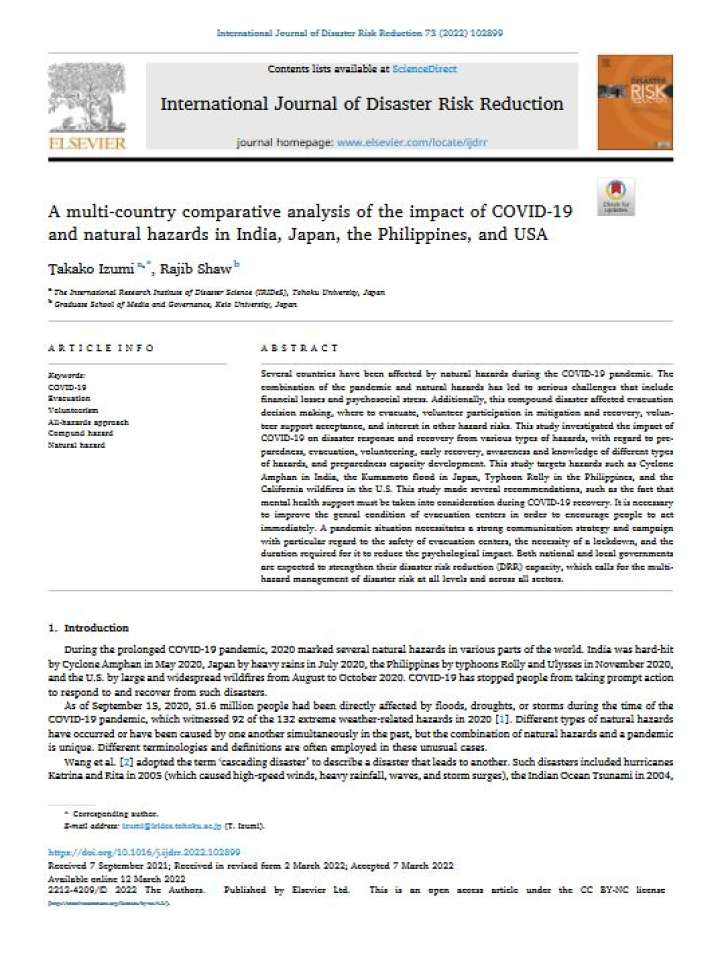A multi-country comparative analysis of the impact of COVID-19 and natural hazards in India, Japan, the Philippines, and USA
This study investigated the impact of COVID-19 on disaster response and recovery from various types of hazards, with regard to preparedness, evacuation, volunteering, early recovery, awareness and knowledge of different types of hazards, and preparedness capacity development. This study targets hazards such as Cyclone Amphan in India, the Kumamoto flood in Japan, Typhoon Rolly in the Philippines, and the California wildfires in the U.S. This study made several recommendations, such as the fact that mental health support must be taken into consideration during COVID-19 recovery.
Several countries have been affected by natural hazards during the COVID-19 pandemic. The combination of the pandemic and natural hazards has led to serious challenges that include financial losses and psychosocial stress. Additionally, this compound disaster affected evacuation decision making, where to evacuate, volunteer participation in mitigation and recovery, volunteer support acceptance, and interest in other hazard risks.
It is necessary to improve the genral condition of evacuation centers in order to encourage people to act immediately. A pandemic situation necessitates a strong communication strategy and campaign with particular regard to the safety of evacuation centers, the necessity of a lockdown, and the duration required for it to reduce the psychological impact. Both national and local governments are expected to strengthen their disaster risk reduction (DRR) capacity, which calls for the multi-hazard management of disaster risk at all levels and across all sectors.
Explore further
